The face of homeless veterans is changing, with females now comprising the fastest growing homeless population in America.
The National Alliance reports that as troops return from operations in Iraq and Afghanistan, homeless veterans are increasingly younger, female, and heads of households.
The rise in homeless Female Veterans is linked to a variety of issues, including Post-Traumatic Stress Disorder (PTSD) and the experience of MST (Military Sexual Trauma) while serving in the military.
Rape, as it turns out, is a common distressing theme among women who serve.
The Military Times reports an “extensive survey of 170,000 troops revealed that 20,000 service members said they had experienced at least one incident of unwanted sexual contact in the past year, representing nearly 5 percent of all active-duty women and 1 percent of active-duty men.”
Unwanted sexual contact is something that pushed Lisa Spencer, a US Navy Veteran who was stationed in New Orleans, Louisiana, for four years, to the edge, drowning in an endless cycle of drug and alcohol abuse, attempts to take her own life, and a 45-day stint in a psych ward of the VA.

She had decided to enter the military after the passing of her mother on October 31st 1988 and a resulting rape on the day of her mom’s funeral.
“I wanted to go into the military but every time I took the test I was told I took it too soon. After a while I stopped taking it,” she says. “Then my mom passed away and I was raped, so I took the test again and passed it, but I initially took the test for the army but decided to go navy.”
Lisa was stationed in Orlando, Florida for boot camp and after, for seaman apprenticeship classes for three weeks, which is when she was sexually abused in 1998.
She recounts the horrific ordeal: “I had just gotten to the hotel off-base, so I was not under the influence and this guy I knew had stuck his head out of his hotel room. We spoke and his friend was also in the room. The guy asked if I was coming back and I said, yes. Someone on the second balcony was talking to me, and then, all of a sudden, he said I was coming back and then he literally picked me up and started to pull me into the room.
“Now the whole time, I was telling him to stop and he put me down and managed to pull me in and pulled me into the bathroom. As he sat on the toilet, knees against the door, he was trying to put his hand up my skirt — I kept pushing him away, telling him to stop but he continued for about 10 minutes. Finally he let me out.
“Now his roommate was in the room acting like he didn’t hear anything. Once I finally got out, I had some friends of mine sitting out by the pool watching what went down. When I told them what happened they encouraged me to report it and they would testify to what they witnessed if needed. When I got back to the barracks, I immediately reported it to the Division Petty Officer. She told me to go to the JAG office and report it, first thing in the morning. So this I did. It took a couple of weeks before it went to Captain’s Mast, which is the step before court martial.”

As for the fate of her attacker?
“One of my friends got a hold of some information before we went to Captain’s Mast (that’s like the navy courtroom), and told me I wouldn’t win that case. Unfortunately, I do not know if he stayed in the military because he had a very extensive list of incidents surrounding alcohol.”
With battle wounds from the assault still very raw some five years later, Lisa found it difficult to adjust when she left the navy in July of 1993. From there, her descent into debauchery, despair and utter hopelessness occurred at breakneck speed, fueled by her increasing appetite for cocaine and alcohol, both of which she abused daily.
“I just got back into the drugs, as it was easier for me to do that so I would not feel the pain and the hurt from the tragedies of losing my mom and the rape,” Lisa recalls. “I was unaware how these things were affecting my relationships: I was married in the military, which only lasted two years because I stopped being intimate with him. We eventually divorced. Even after I got out, my relationships just went down the tubes. After my mom died, I realized I have a fear of abandonment. I left New Orleans and went to Tacoma, Washington (by California) and got into crack for about 4 months. I didn’t like that, so I went to a church that took in homeless people. I stayed there for a few months.”
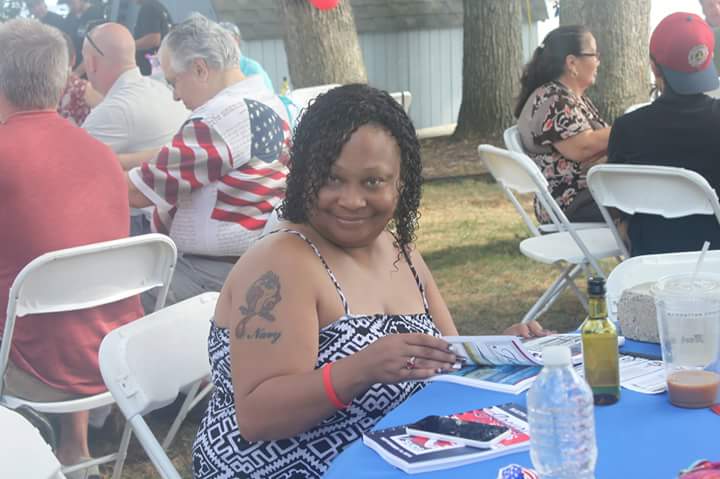
Things started to turn around for her.
“Eventually I got hooked up with the VA out there and was able to get my own apartment. I was clean for 15 years.”
But upon moving to the Bronx to stay with a cousin, things took a dark turn.
“This is where I met my next door neighbor. We started getting high together (sniffing cocaine),” she says. The pair was sniffing two to three grams a day.
Finally, she hit rock bottom.
“My turning point, I believe, was that I had a mental breakdown. One night I was getting high and I started talking to the curtains. and then I remember talking to my cousin and crying severely. She kept trying to get me to lay my head down and go to sleep,” Lisa recalls. “This is how I ended up in the psych ward of the VA. At this point I knew I had to deal with these issues. I became very dedicated to dealing with them and I am still dealing with them today.”
Now 51, Lisa has been clean and sober for four years and has turned her life around, which she credits largely to attending Dr. Gilda Carle’s Country Cures® Empowerment Training for SHEroes, an educational non-profit charity. Dr. Gilda is the media’s Go-To Relationship & Life Style Expert. Her unique female-centric training uses Country Music and Female Language that touch the hearts of our SHEroes. “Guitar strings to heart strings” is her motto.
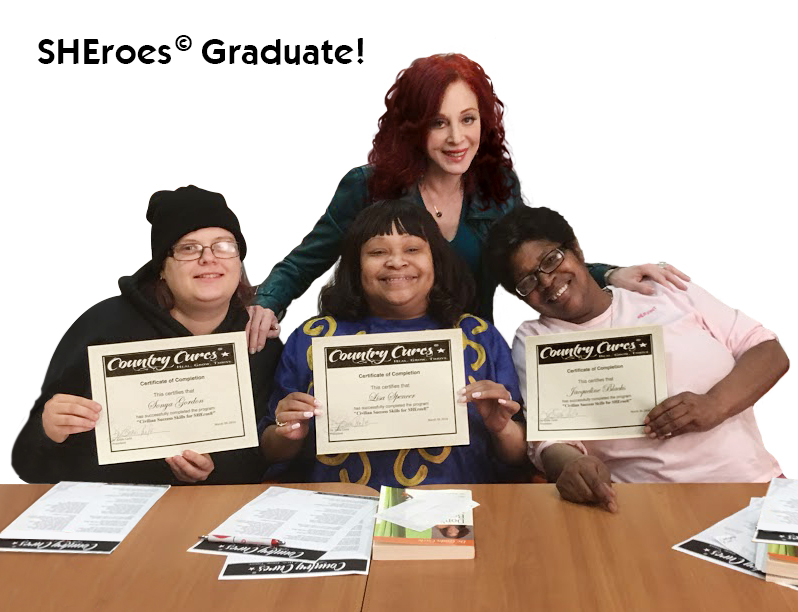
Dr. Gilda’s desire to start up the organization stemmed from her own personal experience. “From a series of angry men and dysfunctional relationships I had with them, I suffered from Post Traumatic Stress Disorder (PTSD). After I recovered, I fell in love with a veteran with PTSD, and I saw the disorder from the other side,” she says. “The veteran was too broken to sustain a relationship, but I learned a lot from him about military issues.
“During this time, I was writing a weekly column for the Today Show: “30-Second Therapist.” Female Vets were begging me to give them solutions for their own broken relationships. With all the corporate training I’d done, with the 17 relationship books I’d written mostly for women, with my media celebrity status, and with my use of Country Music to heal people, it was my natural progression to put it all together. What developed was a healing technology that met the specific needs of these women as no other had.
“The Female Vets didn’t want the therapy the military offered; they needed training. They trusted me because they had watched me daily, doling out relationship advice on national TV. To meet their needs, I created an educational 501(c)(3) non-profit organization, which I appropriately named Country Cures®.”
On a daily basis, Dr. Gilda sees how Female Vets are largely overlooked.
“Female Vets comprise almost 15% of the military, and many of them are also unemployed,” she says. “The military is a male bastion. The Female Vets who return to civilian life are often confused by a new world they do not understand.
“One Female Veteran told me, ‘They taught us how to kill. They should be teaching us how to live.’ But the VA can’t possibly understand civilian women’s needs, especially since these women were trained so well to conform to the military’s male mores. So the women get out, strong, proud, aggressive, and bold. But civilian women are expected to be more “civilized.” Suddenly, they have low self-esteem, they’re angry, and they have no guidance as to how to face the world.'”
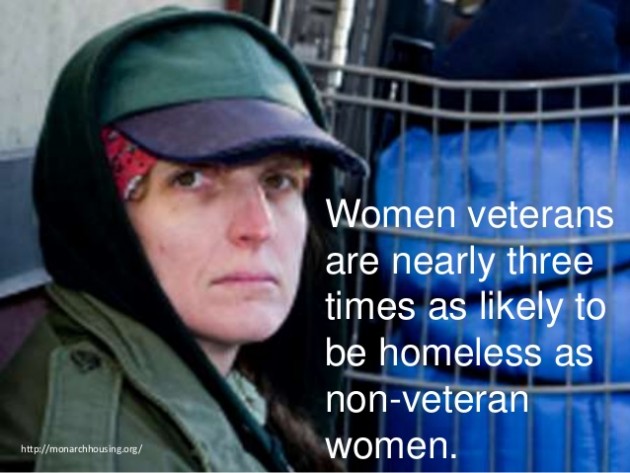
Dr. Gilda explains, “They often give away their power and pride to become part of what the civilian world APPEARS to be. That’s why Country Cures® trains them in Empowerment Skills”
Feeling despondent and somewhat lost, some Female Vets also make the mistake of gravitating towards the wrong men in their bid to fill the void inside them.
“Often, when these women return home, they hook up with men who can’t deal with their power and strength,” Dr. Gilda describes. “While the men become intimidated by these strong women, the women who naturally want love hand over their power to these guys. A lot of domestic violence occurs. Country Cures® shows them healthy communications styles that support these women’s integrity and make them positive role models for their kids.”
All the while, these women continue to deal with sexual trauma.
“There is more MST than anyone can imagine, ” Dr. Gilda says. “Many Female Vets openly share stories of being raped in the military and many tell me they never really got closure about the incident because their cases were dismissed. Most of those I meet tell me they’re still dealing with it, often 20 years later. All of them suffer relationship skills scars.”
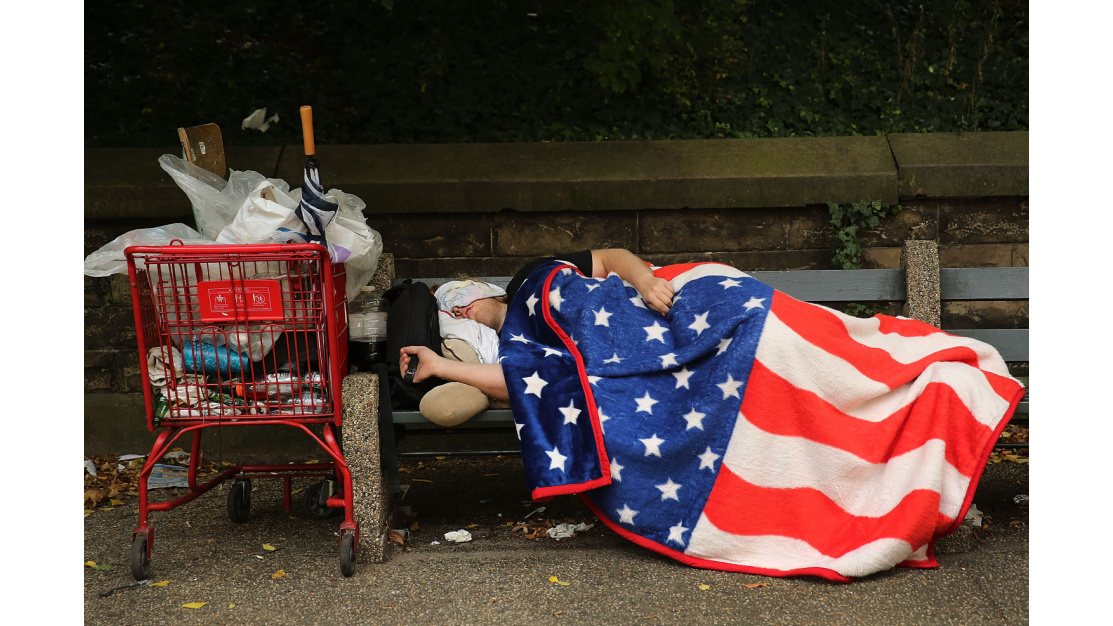
Dr. Gilda’s Country Cures® is working! It’s helping to empower these woman again and heal their low self-esteem. Many of the Female Vets enrolled in her program have since gone on to land jobs and create a new, hopeful lives for themselves.
Dr. Gilda explains, “Like so many civilian women, they often relinquish their power and pride to become part of what the civilian world APPEARS to be. That’s why Country Cures® trains them in Empowerment Skills.”
“One male military officer was so impressed, he said that my Empowerment Training should be a REQUIREMENT for every single veteran—male and female–returning home. Otherwise, they will not succeed in the civilian world,” he said.
This military officer is right!
In a letter Lisa sent to Dr. Gilda, she wrote of her new life:
Hello Dr. Gilda,
The Country Cures Empowerment Training for our SHEroes is really paying off. I created a Tenants Association in the building that houses our veterans, so we can deal with the issues we have there. I have never felt so strong in my life! A BIG, HUGE THANK YOU. I also just received my certificate of completion as a Credentialed Alcohol and Substance Abuse Counselor from Lehman College.
I am so very proud of me, but it was because of YOU that I can actually say that.
Lisa Spencer
US Navy Veteran
Lisa’s life-long mission has now emerged as one of helping other women who are dealing with MST and PTSD.
“I know I am not the only Female Veteran dealing with MST and PTSD,” she says. “My mission is to help other Female Veterans because there is not a lot of help for them. I intend to be a good resource for them to help them and to guide them on the right path.”
More than a decade on, Lisa has her life back on track.

So what does Kindness and Hope mean to both Lisa and Dr. Gilda?
For Dr. Gilda it’s about giving Female Vets hope again.
“Kindness is what WE must do for those who gave a piece of their lives for us,” she says. “Hope is what our Female Vets must be taught to have. And Country Cures® shows them how to have hope, and how to be open to receive kindness.”
Lisa explains, “For me, kindness is something you do from the heart, to be considerate, compassionate, and understanding. Hope for me means there is light at the end of the tunnel. Never give up, be strong, keep your head held high — you’re not alone.”
ABOUT DR. GILDA CARLE
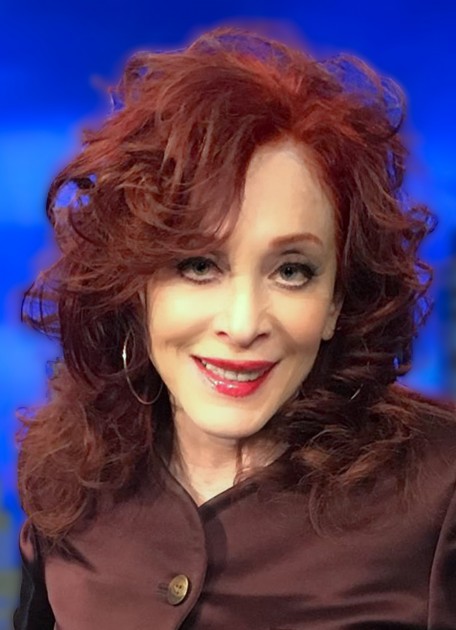
DR. GILDA CARLE (Ph.D.) is the media’s Go-To Relationship & Life Style Expert, serving clients worldwide at www.DrGilda.com. She was the therapist on TV’s Sally Jessy Raphael show, has conducted Relationship Wellness training for Columbia University Medical Center, and hosts TBN TV shows. As President of Country Cures® at www.CountryCures.org, she uniquely applies Country Music to train Female Veterans in Empowerment Skills. She is also a product spokesperson (Hallmark, Harlequin, Sprint, Cottonelle, Galderma Pharmaceuticals, Match.com), keynote motivational speaker, Professor Emerita of Business, and author of 17 books, including “Don’t Bet on the Prince!” (test question on “Jeopardy”), “How to WIN When Your Mate Cheats” (literary award winner from London Book Festival), and “Don’t Lie on Your Back for a Guy Who Doesn’t Have Yours” with its companion workbook, “My Rants & Ramblings Journal.” She wrote the weekly “30-Second Therapist” column for the Today Show, the “Ask Dr. Gilda” column for Match.com, and she was the therapist in HBO’s Emmy Award winner, “Telling Nicholas,” featured on Oprah. She hosted MTV Online’s “Love Doc,” she was the TV host for Fox’s “Dr. Gilda” show pilot, and she hosts TV shows on TBN.

Let’s give back to those who served for us. We must save our women, our children, and our communities.
Donate to Country Cures® NOW!


